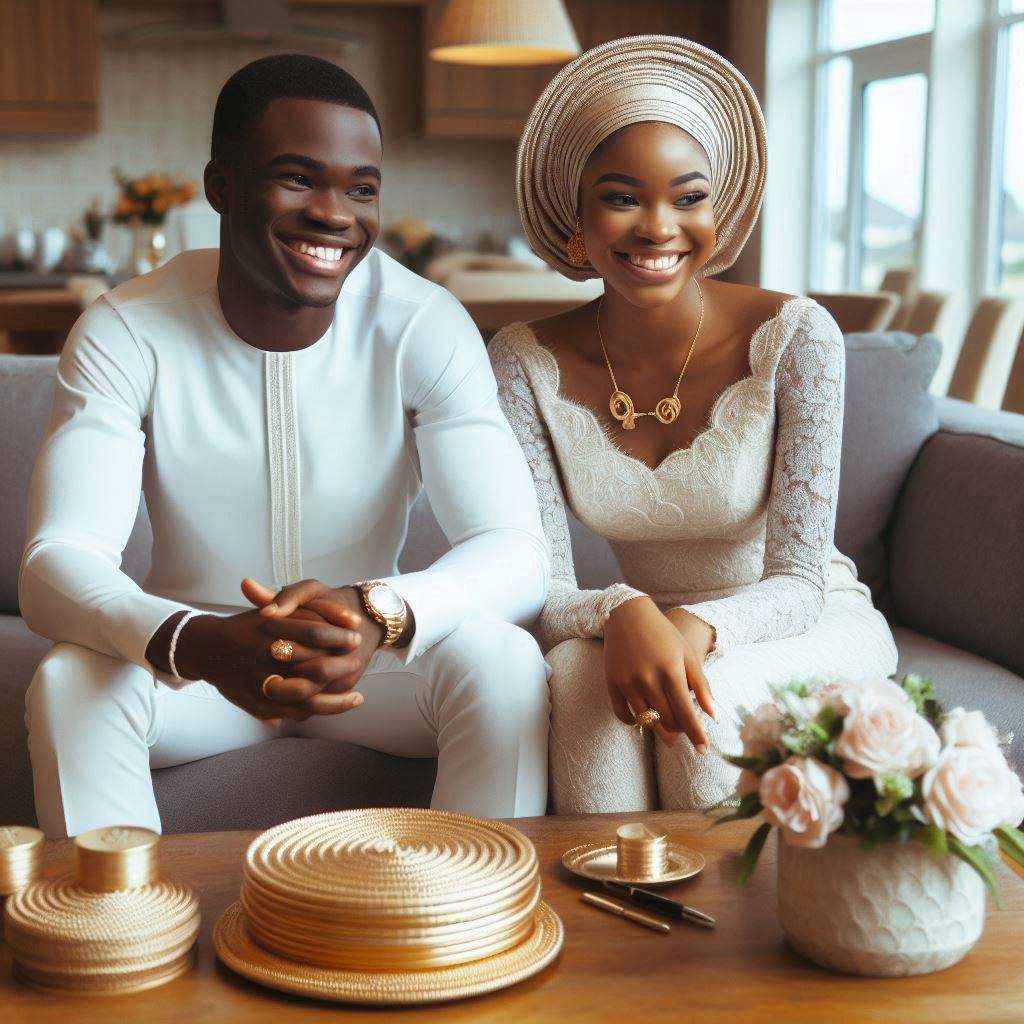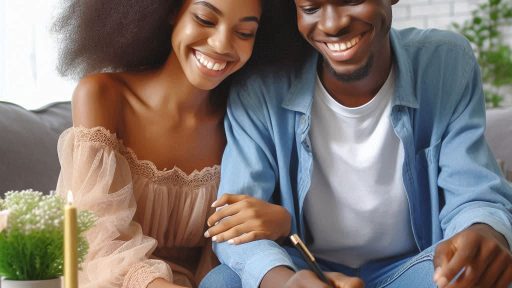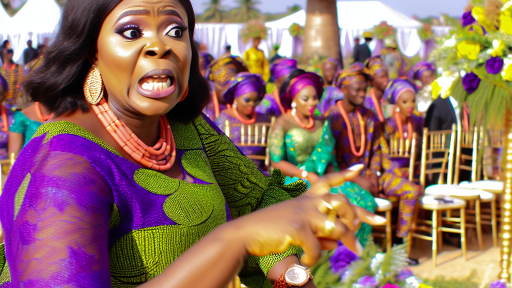Introduction
Nigerian wedding culture is rich and vibrant, reflecting diverse ethnic traditions.
These weddings are grand celebrations of love and unity.
Understanding Nigerian wedding culture is essential for a successful event.
- Rich Traditions: Nigerian weddings feature colorful attire, elaborate ceremonies, and significant rituals.
Each ethnic group brings unique customs to the celebration. - Elaborate Celebrations: Weddings often involve multiple ceremonies, including traditional rites and modern festivities.
This blend creates a memorable experience.
Proper wedding planning is crucial in Nigerian culture.
It ensures that every detail aligns with traditions and expectations.
- Cultural Sensitivity: Planning requires knowledge of specific ethnic customs.
Adhering to these practices shows respect for cultural heritage. - Detailed Coordination: Effective planning involves organizing venue, attire, and ceremonies.
Coordination helps avoid last-minute issues and ensures a smooth event. - Guest Experience: Proper planning enhances guest experience, making the celebration enjoyable and memorable.
In fact, understanding and planning for Nigerian wedding traditions is key.
It honors cultural practices and ensures a joyous and harmonious celebration.
Setting a Budget
Establishing a budget early on is crucial to avoid overspending and ensure a stress-free wedding planning process.
Importance of establishing a budget early on
- Helps you prioritize expenses
- Avoids financial strain post-wedding
- Guides decision-making throughout planning
- Allows for a realistic vision of what you can afford
Tips for creating a realistic budget
- Research typical costs in your area
- Set aside a contingency fund for unexpected expenses
- Consider your personal financial situation
- Allocate more funds for priorities and less for extras
Potential costs to consider in Nigerian weddings
- Traditional attire for the couple and families
- Decor and venue rental
- Catering for guests
- Photography and videography services
- Entertainment and music
- Transportation for the bridal party
- Gifts for guests and vendors
- Wedding planner or coordinator fees
Overall, setting a budget for your Nigerian wedding is essential for a smooth planning process and a memorable day without financial stress.
Choosing a Date and Venue
When it comes to planning a Nigerian wedding, one of the first decisions you need to make is selecting a date and venue.
This sets the tone for the entire event and can impact many other aspects of your big day.
Here are some factors to consider when choosing a wedding date and venue:
Factors to consider when selecting a wedding date
- Availability of key guests such as family and close friends
- Weather conditions during the chosen month
- Consider cultural or religious events that may clash with your date
- Availability of your preferred wedding venue
Popular Wedding Venues in Nigeria
- The Balmoral Convention Centre, Federal Palace Hotel, Lagos
- The Landmark Event Centre, Victoria Island, Lagos
- The KFA Events Place, Lekki, Lagos
- The Lekki Coliseum, Lekki, Lagos
- The Oriental Hotel, Victoria Island, Lagos
Tips for booking a venue in advance
- Start your venue search early to secure your desired date
- Visit the venue in person to get a feel of the space
- Ensure the venue can accommodate your expected guest count
- Discuss any additional services provided by the venue such as catering
- Negotiate the price and terms of the venue rental contract
By carefully considering these factors and tips, you can ensure that your wedding date and venue are the perfect fit for your special day.
Read: Financial Planning for a Memorable Nigerian Wedding
Selecting Vendors
Importance of choosing reliable vendors
Choosing reliable vendors is crucial for ensuring that your Nigerian wedding goes smoothly.
Reliable vendors will help you execute your vision and handle any unexpected challenges that may arise during the planning process.
Types of vendors needed for a Nigerian wedding
- Caterer: Responsible for providing delicious food for your guests.
- Decorator: Enhances the aesthetic appeal of your wedding venue.
- Photographer/Videographer: Captures memories that will last a lifetime.
- Wedding Planner: Helps coordinate all aspects of your big day.
- Makeup Artist/Hairstylist: Ensures you look your best on your special day.
- DJ/Band: Provides entertainment for your guests during the reception.
- Transportation: Arranges transportation for the bridal party and guests.
Tips for researching and hiring vendors
- Ask for recommendations from friends and family who have recently planned a wedding.
- Read online reviews and view portfolios to get a sense of each vendor’s style and quality of work.
- Schedule interviews with prospective vendors to discuss your vision and ensure they are a good fit for your wedding.
- Request quotes from multiple vendors to compare prices and services offered.
- Get everything in writing, including contracts and payment terms, to avoid any misunderstandings later on.
- Communicate openly with your vendors throughout the planning process to address any concerns or changes.
Read: Exploring Nigeria’s Unique Traditional Wedding Rituals
Traditional vs. Modern Elements
Incorporating Traditional Nigerian Customs
- Begin with the engagement ceremony, where the groom formally asks for the bride’s hand.
- Consider incorporating the “igba nkwu” or wine carrying ceremony, a traditional Igbo custom.
- Adorn the bride in a traditional attire like an Aso Oke or Ankara fabric outfit.
- Include traditional dances like the “Bata” or “Agbada” dance at the reception.
- Serve traditional Nigerian dishes like jollof rice, pounded yam, and egusi soup.
Balancing Traditional and Modern Elements
- Combine traditional outfits with modern styles like a fusion of a gele and a contemporary gown.
- Create a playlist with a mix of traditional Nigerian music and current hits for the reception.
- Incorporate modern decor elements like fairy lights while maintaining traditional color schemes.
- Opt for a modern twist on traditional bridal accessories like beaded jewelry or headpieces.
- Offer guests traditional gifts like kolanuts or aso-ebi while including modern favors like personalized trinkets.
Personalizing the Wedding for Cultural and Individual Reflection
- Customize the wedding invitation with traditional Nigerian patterns or symbols.
- Include a fusion of traditional wedding customs like the tying of the gele and modern vow exchanges.
- Honor the elders in the families with a traditional prayer or blessing ceremony.
- Design a wedding website that shares the couple’s love story alongside their cultural backgrounds.
- Decorate the venue with artifacts or elements that represent the couple’s heritage and interests.
Read: Cultural Celebrations: Integrating Nigerian Traditions in US Weddings

Guest List and Invitations
Planning a Nigerian wedding involves careful consideration of your guest list and invitations.
Follow these steps to ensure a smooth process.
Creating a Guest List
- Reflect Cultural Norms: Include family, close friends, and community leaders.
Nigerian weddings often feature a large, diverse guest list. - Consult with Families: Discuss the guest list with both families.
Include important relatives and friends who are significant to the couple. - Consider Social Status: Acknowledge the social status of guests.
Invite influential figures and respected community members to honor traditions. - Plan for Plus-Ones: Decide whether to allow guests to bring a plus-one.
This approach is common in Nigerian weddings and helps in accommodating extended family and friends.
Tips for Sending Out Invitations
- Send Invitations Early: Distribute invitations at least two to three months before the wedding.
This allows guests ample time to prepare and RSVP. - Choose Traditional Formats: Use traditional Nigerian designs and symbols on your invitations.
This reflects the cultural significance of the wedding. - Include All Details: Clearly state the date, time, venue, and dress code.
Ensure that guests have all the information they need. - Follow Up: Send reminders closer to the wedding date.
This helps confirm attendance and reduces the chance of last-minute changes.
Managing RSVPs and Seating Arrangements
- Track RSVPs: Use an RSVP system to monitor responses.
This helps in managing the final guest count and making necessary arrangements. - Plan Seating Arrangements: Create a seating chart that respects cultural norms.
Arrange seats to facilitate easy interaction among guests. - Accommodate Special Needs: Consider guests with special needs, such as dietary restrictions or mobility issues.
Make appropriate arrangements to ensure their comfort. - Communicate Changes: Inform guests of any changes to the schedule or venue.
Ensure everyone is updated on last-minute details. - Prepare for Unexpected Guests: Have a contingency plan for unexpected guests.
Allocate extra seats and meals to handle last-minute additions.
Planning the guest list and invitations with attention to cultural norms ensures a respectful and inclusive wedding celebration.
By sending invitations early and managing RSVPs effectively, you create a well-organized event that honors both tradition and guest comfort.
Properly handling these aspects contributes to a memorable and joyous Nigerian wedding experience.
Read: Bridal Trains and Their Significance in Nigerian Weddings
Cultural Customs and Traditions
When planning a Nigerian wedding, it is essential to understand and honor the cultural customs and traditions that make these weddings unique and special.
Here, we will provide an overview of common Nigerian wedding customs and traditions, discuss the importance of respecting cultural practices during the wedding, and offer suggestions for incorporating cultural elements into the ceremony and reception.
Strengthen Your Marriage Today
Get personalized solutions for your relationship challenges. Receive expert Marriage Consulting tailored just for you in 1-3 days.
Get StartedOverview of Common Nigerian Wedding Customs and Traditions
- Traditional Attire: Nigerian weddings often feature traditional attire, such as the gele (head tie) and agbada (robe) for the bride and groom.
- Dances and Music: Nigerian weddings are known for vibrant dances like the Azonto and high-energy music like Afrobeat.
- Bridal Price Negotiation: This traditional custom involves the groom negotiating a price with the bride’s family for her hand in marriage.
- Exchange of Gifts: Gifts are exchanged between both families as a symbol of goodwill and unity.
- Feasting: Nigerian weddings are famous for their delicious food, including jollof rice, pounded yam, and assorted meats.
Importance of Respecting Cultural Practices During the Wedding
Respecting cultural practices during a Nigerian wedding is crucial for honoring tradition, showing respect to family members, and preserving the cultural identity of the couple.
It is essential to understand the significance of each custom and ensure that they are performed with sincerity and reverence.
By respecting cultural practices, couples can strengthen their bond with their families, create lasting memories, and celebrate their heritage in a meaningful way.
It also allows guests to appreciate and participate in the rich cultural tapestry of Nigeria.
Suggestions for Incorporating Cultural Elements Into the Ceremony and Reception
There are several ways to incorporate cultural elements into a Nigerian wedding ceremony and reception.
Here are some suggestions to help couples infuse their special day with traditional customs and traditions:
- Traditional Attire: Wear traditional Nigerian attire during the ceremony or incorporate elements of Nigerian fashion into the bridal party’s outfits.
- Music and Dance: Hire a live band or DJ to play traditional Nigerian music and encourage guests to participate in traditional dances.
- Cultural Decor: Decorate the venue with traditional Nigerian fabrics, colors, and patterns to create an authentic cultural atmosphere.
- Food and Drinks: Serve traditional Nigerian cuisine and drinks at the reception to give guests a taste of Nigerian culinary delights.
- Rituals and Ceremonies: Incorporate traditional Nigerian wedding rituals, such as the pouring of libations or the tying of the marriage knot, into the ceremony.
By incorporating these cultural elements into their wedding celebrations, couples can pay homage to their heritage, create a memorable and unique experience for their guests, and showcase the beauty and richness of Nigerian culture.
Logistics and Day-of Coordination
Creating a Detailed Timeline for the Wedding Day
Creating a detailed timeline for your wedding day is crucial.
A well-organized timeline ensures everything runs smoothly.
Start by outlining the schedule from start to finish.
Include key events like the ceremony, reception, and any special moments.
Allocate specific times for each activity to keep everyone on track.
Tips for Coordinating Vendors and Events
- Confirm Arrangements: Verify all vendor details a week before the wedding.
Check contracts, delivery times, and contact information. - Establish Communication Channels: Set up a group chat or email thread with all vendors.
Keep everyone informed of any changes. - Coordinate Timings: Ensure that each vendor knows the timeline.
This helps avoid delays and ensures seamless transitions between events. - Prepare for the Unexpected: Have a backup plan for potential issues, such as weather changes or equipment failures.
Inform vendors of contingency plans. - Delegate Responsibilities: Assign specific tasks to trusted friends or family members.
This allows you to focus on enjoying the day.
Importance of Having a Designated Point Person
- Centralized Management: Designate a point person to oversee all logistics.
This individual handles any issues and keeps everything organized. - Effective Communication: The point person serves as the main contact for vendors and guests.
This minimizes confusion and ensures smooth communication. - Quick Problem-Solving: In case of any last-minute issues, the point person can quickly address and resolve them.
This keeps the day on track. - Stress Reduction: Having a reliable point person reduces your stress.
You can enjoy the wedding without worrying about logistics.
By creating a detailed timeline and coordinating effectively with vendors, you ensure a successful wedding day.
A designated point person plays a crucial role in managing the day’s logistics.
This approach allows you to focus on celebrating and enjoying your special day while ensuring that everything runs smoothly.
Conclusion
Planning a Nigerian wedding involves understanding and embracing rich cultural traditions.
Here’s a summary of key points:
- Understand Traditions: Research the specific customs of your ethnic group.
Incorporate these traditions into your wedding plans. - Set a Budget: Determine your budget early.
Allocate funds for various aspects such as attire, venue, and ceremonies. - Choose the Venue: Select a venue that fits your cultural needs and accommodates your guests comfortably.
- Plan the Attire: Opt for traditional attire that reflects your heritage.
Coordinate outfits for both the bride and groom. - Coordinate with Families: Communicate with both families to ensure all traditional rituals are included in the wedding plans.
Embrace your cultural heritage throughout the planning process.
Celebrating your traditions adds depth and meaning to your special day.
By incorporating these elements, you honor your roots and create a memorable event.
Let your cultural background shine through in every detail, from ceremonies to attire.
This approach not only enriches your wedding experience but also strengthens family ties and cultural pride.




